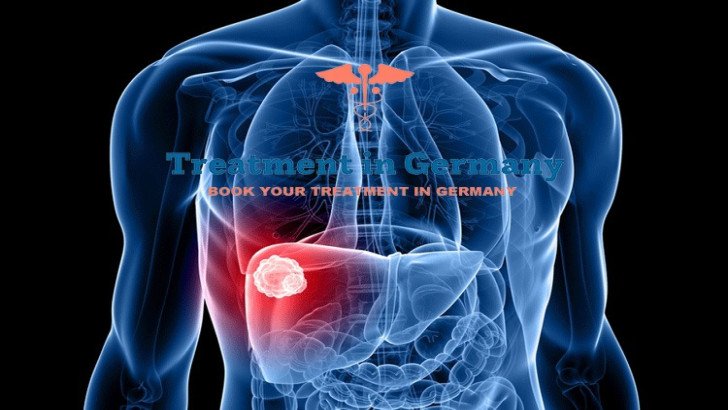
Germany, a global hub for advanced liver cancer care, is reshaping treatment outcomes with innovative therapeutic breakthroughs, attracting liver cancer worldwide.
Liver cancer, a formidable malignancy primarily affecting the liver, poses significant challenges due to its aggressive nature and late diagnosis. Germany, a global hub for advanced liver cancer care, is reshaping treatment outcomes with innovative therapeutic breakthroughs, attracting liver cancer worldwide.
Liver cancer, predominantly hepatocellular carcinoma (HCC), arises from liver cells, often linked to chronic conditions like hepatitis or cirrhosis. Risk factors include obesity, excessive alcohol consumption, viral hepatitis (B or C), and genetic predispositions. Early-stage liver cancer may be treatable with surgery, but advanced cases, especially with metastasis, require sophisticated interventions. Germany’s oncology centers and hepatology departments lead in advanced liver cancer care, integrating targeted therapies, immunotherapy, and minimally invasive techniques to improve survival rates.
Early recognition of liver cancer symptoms is vital for timely intervention. Common signs include:
These symptoms may mimic less severe conditions, underscoring the need for precise diagnosis. German specialists leverage advanced tools to identify liver cancer, optimizing treatment outcomes.
Precision Diagnostic Advancements for Liver Cancer
Accurate diagnosis forms the backbone of effective liver cancer treatment. Germany’s hepatology departments employ state-of-the-art diagnostic advancements to confirm liver cancer and guide therapeutic breakthroughs:
German radiologists and hepatologists ensure meticulous diagnostic advancements, enabling tailored standards of care for liver cancer patients.
Germany’s Trailblazing Cutting-Edge Treatments for Liver Cancer
Germany’s advanced liver cancer care ecosystem is redefining treatment outcomes through innovative therapeutic breakthroughs, particularly for advanced or unresectable liver cancer. Oncology centers combine established and experimental approaches to address this complex malignancy.
Surgical and Ablative Innovations
For resectable liver cancer, surgery offers the best chance for cure. German surgeons and interventional radiologists employ advanced techniques, including:
These surgical innovations and ablative techniques enhance anti-tumor efficacy, improving survival rates.
Embolization Therapies: Targeting Tumor Blood Supply
Embolization therapies starve tumors by blocking their blood supply, a key therapeutic breakthrough for unresectable liver cancer:
German interventional radiologists use angiography to guide these procedures, optimizing treatment outcomes.
Targeted Therapies and Immunotherapy
For advanced liver cancer, Germany offers systemic cancer treatment innovations:
German oncologists personalize these treatments, enhancing anti-tumor efficacy for liver cancer patients.
Pioneering Clinical Trials
Germany’s leadership in clinical trials for liver cancer provides access to novel therapeutic breakthroughs, often unavailable elsewhere. Trials in 2025 explore:
German oncology centers drive global research, advancing advanced liver cancer care.
Why Germany Stands Out in Liver Cancer Care
Germany offers unparalleled advantages for liver cancer patients seeking cutting-edge treatments:
Risk Factors and Prevention Strategies for Liver Cancer
Preventing liver cancer complements treatment efforts. Key risk factors include:
German specialists advocate hepatitis vaccination, alcohol moderation, and regular screenings (ultrasound, AFP tests) to reduce disease risk.
Comprehensive Multidisciplinary Cancer Care
Germany’s multidisciplinary cancer care ensures holistic liver cancer treatment:
This integrated approach, led by German hepatologists and oncologists, maximizes treatment outcomes.
Post-Treatment Support and Enhancing Quality of Life
Following liver cancer treatment, German oncology centers provide robust follow-up care:
Germany’s patient-focused approach ensures liver cancer patients achieve sustained recovery.
Challenges and Future Directions
Liver cancer treatment faces challenges, including late diagnosis and therapy resistance. German researchers address these through:
Future innovations, including theranostics and personalized vaccines, promise to expand therapeutic breakthroughs.
Conclusion
Germany’s cutting-edge treatments for liver cancer are revolutionizing care, offering liver cancer patients hope through advanced liver cancer care. By integrating surgical innovations, embolization therapies, immunotherapy, and clinical trials, German oncology centers deliver tailored, transformative cancer treatment innovations. Supported by world-class specialists and state-of-the-art technology, Germany ensures exceptional survival rates and quality of life. As a global leader in standards of care, Germany provides a beacon of hope for liver cancer patients, blending scientific excellence with compassionate support.
Frequently Asked Questions
What are the cutting-edge treatments for liver cancer in Germany?
They include surgical resection, embolization therapies, and immunotherapy, offered at German oncology centers.
What are common liver cancer symptoms?
Symptoms include abdominal pain, jaundice, weight loss, and fatigue, requiring prompt diagnosis.
How is liver cancer diagnosed in Germany?
Through CT scans, MRI, biopsies, and molecular profiling at German hospitals.
Are clinical trials for liver cancer available in Germany?
Yes, German oncology centers explore theranostics and novel immunotherapies.
Is follow-up care provided after liver cancer treatment in Germany?
Yes, including MRI, rehabilitation, and emotional wellness support.
How does Germany compare to the UK/US for liver cancer treatment?
Germany excels in therapeutic breakthroughs, faster access, and holistic care.
Can liver cancer treatment prevent recurrence?
Targeted therapies and immunotherapy reduce recurrence risk by targeting residual cancer cells.
Does Germany support international liver cancer patients?
Hospitals in Germany offer language assistance, travel coordination, and emotional wellness programs.
What are the latest advancements in liver cancer treatment in Germany?
Germany pioneers AI-driven diagnostics, theranostics, and immunotherapy integration.
How do minimally invasive treatments differ from traditional surgery for liver cancer?
Unlike surgery, minimally invasive treatments like TACE or RFA offer targeted anti-tumor efficacy with less recovery time, enhancing quality of life.
For more information or a free consultation, visit our contact us page.
Kindly complete the form below, and our dedicated team will reach out to you promptly. We look forward to connecting with you soon!
Trierer Straße, 56072 Koblenz, Germany

.webp)
 (1).webp)

.webp)
 (1).webp)


.webp)
 (1).webp)

.webp)
 (1).webp)
